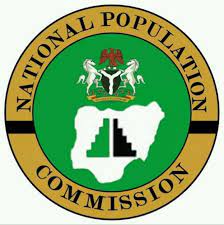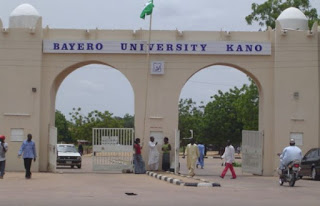Why HND Graduates Undergo One-Year Mandatory Training Before Conversion - FG
The Federal Government has explained why holders of the Higher National Diplomas (HND) qualification undergo a one year mandatory training requirements before their conversion from Executive to Officer cadre in the federal civil service.
Also See: HND Holders to now be Employed as Lecturers in Polytechnics
Folashade Yemi-Esan, the head of Service of the Federation, revealed the reason while speaking at an interactive session, with civil servant in Abuja, on Thursday.
 |
| Mrs. Folashade Yemi-Esan |
Yemi- Esan who was conducting her third interactive session with civil servants since she assumed office, was responding to question from Adebayo Hassan, a Grade Level 14 officer, who requested to know why the dichotomy between B.Sc and HND, in public service; and what government is doing to bridged the gap.
According to the HoSF “ the curriculum for HND and B.Sc are not the same, hence, HND graduates will have to undergo mandatory one year training before conversion from Executive to Officer cadre.”
The battle for equality between the holders of HND and Bachelor’s degrees, which has continued to generate controversies saw a major leap in 2021, when the Senate and House of Representatives passed a bill prohibiting discrimination between them.
The bill was titled a “ Bill for an Act to Abolish and Prohibit Dichotomy and Discrimination between First Degree and Higher National Diploma in the Same Profession/Field for the Purpose of Employment; and for Related Matters,” prohibits discrimination between HND and bachelor’s degree, and prescribe equality among them.
Also See: NBTE Introduces Mandatory Skills Qualifications for Polytechnic Graduates
Part of the content of the bill says “ Notwithstanding any provision in any legislation, circular, regulation or policy guideline, First Degree and Higher National Diploma shall be deemed construed and treated as equivalent qualification for the purpose of employment and career progression at workplace in the public and private sectors of the Nigerian economy,” the bill reads in part.
“Any provision in-laws, enactments, instruments, circulars, scheme of service, directives, or policies by whatever name called, which is inconsistent with the provisions of this bill, shall to the extent of the inconsistency be null and void, and of no effect.”
The bill never saw the light of the day as former President Muhammadu Buhari declined assent to the bill, which would have ended the controversy.
In another question, Kindness Odigili from Ministry of Niger Delta Affairs averred that training on the implementation of Performance Management System, is not being cascaded to the state offices to which the HoSF said that the Permanent Secretries, as well as Directors, Human Resource Management (HRM) should be held liable for the oversight.
Oyinyechi Eberendu from OHCSF, Abuja spoke on behalf of Civil Servants with disabilities and the challenges they are going through as a result of the present economy situation in the country.
Also See: No More HND in Computer Science, NBTE Rolls out 4 New Replacements
Some of these challenges range from spending a subtantial part of their salaries goes into transportating themselves to and from work. She, however, suggested that the HoSF holds a similar session with this venurable group in order to identify their peculiarities with a view to profering solutions to them.
The interactive session held virtually, allowed those outside Abuja to link up with other Civil Servants in commemoration of the 2024 Civil Service Week with the theme ‘Educate an African fit for the 21st Century: Building Resilient Education Systems for Increased Access to Inclusive, Lifelong, Quality and Relevant Learning in Africa held on Wednesday 19th June, 2024.
According to Yemi-Esan, the annual activities of the Civil Service Week connotes significant event in our calendar and it provides a veritable platform for every class of Civil/Public Servants to interact freely, with the HoSF. It is a ‘no holds barred’ session for questions and comments on the Service, which the HoSF provides insight in them.
She stated that this year’s theme emphasied the need for education to be accessible, inclusive, and of high quality while highlighting the need for it to constantly remain relevant to the rapidly evolving demands of the modern world.
The theme also speaks to how the Nigeria Civil Service is leveraging learning and development to enhance the capacity and capability of its workforce with a view to deliver on national priorities.
Yemi-Esan further stated that the first priority area/pillar of FCSSIP 25 is Capacity Building and Talent Management, which is in line with the theme selected by the African Union for this year.
She affirmed that the lessons learned in the recent years further underscore the need to commit to continuous self-development, particularly in view of emerging global challenges, in relation to emerging technologies and the new world of work.
She disclosed that the “rapidly changing work environment, as well as demands for greater efficiency have necessitated the adoption of Performance Management System (PMS) by the Nigeria Civil Service, adding that PMS Policy and Guidelines have been developed and circulated to all Ministries, extra-ministerial Departments and Agencies (MDAs) and core teams for its implementation
“PMS implementation has been cascaded to the Ministries, with the Permanent Secretaries serving as the primary drivers. In this regard, performance contracts are to be further cascaded down to the last officer in each MDA.
“This new system will assess each officer’s performance solely based on their respective Key Performance Indicators (KPI), and it will enable tracking of job objectives across all MDAs. By implication, each officer across the Service can clearly link his/her goals and objectives with those of his/her department, those of the respective Ministry and the national KPIs,’’ she reiterated.
The HoSF described the digitalisation of work processes in the Service as another reference point in the remarkable ongoing transformation of the Federal Civil Service. She further stressed that the Office has fully digitized all personal and policy files and is implementing digital transaction of workflow processes as all official correspondence in the form of memos, internal and external circulars, are now being processed electronically through the Enterprise Content Management (ECM) solution.
Source: BusinessDay




Comments
Post a Comment
Disclaimer: All comments on this blog are the thought and opinion of blog readers, We will not in anyway be liable for them. Thank you.